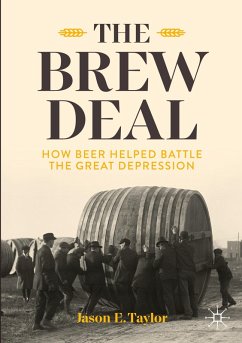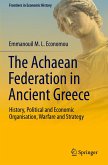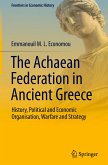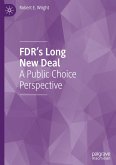During the final stages of Prohibition, the US government allowed the consumption and sale of "non-intoxicating" beer, which was at or below 3.2% alcohol-by-weight. Beer's return-permitted with an eye toward job creation during the Great Depression-was one of President Franklin D. Roosevelt's earliest New Deal policies. In this book, economic historian Jason E. Taylor takes readers through the rapid resurgence of American breweries and shows how beer helped spark a sharp recovery in the spring of 1933.
Taylor begins with stories of how the nation's 1,400 breweries were decimated by the onset of Prohibition in 1920. He then turns to the frothy debates that led Congress to declare 3.2 beer "non-intoxicating," and hence allowable under Prohibition. While April 7th is now celebrated as "National Beer Day," the original April 7th-when legal beer returned after more than 13 years away-brought raucous scenes that make today's Mardi Gras festivities seem tame by comparison.
The Brew Deal shares stories of breweries, people, politics, perseverance, and the various roles that 3.2 beer has played in the evolving American beer scene.
Taylor begins with stories of how the nation's 1,400 breweries were decimated by the onset of Prohibition in 1920. He then turns to the frothy debates that led Congress to declare 3.2 beer "non-intoxicating," and hence allowable under Prohibition. While April 7th is now celebrated as "National Beer Day," the original April 7th-when legal beer returned after more than 13 years away-brought raucous scenes that make today's Mardi Gras festivities seem tame by comparison.
The Brew Deal shares stories of breweries, people, politics, perseverance, and the various roles that 3.2 beer has played in the evolving American beer scene.








